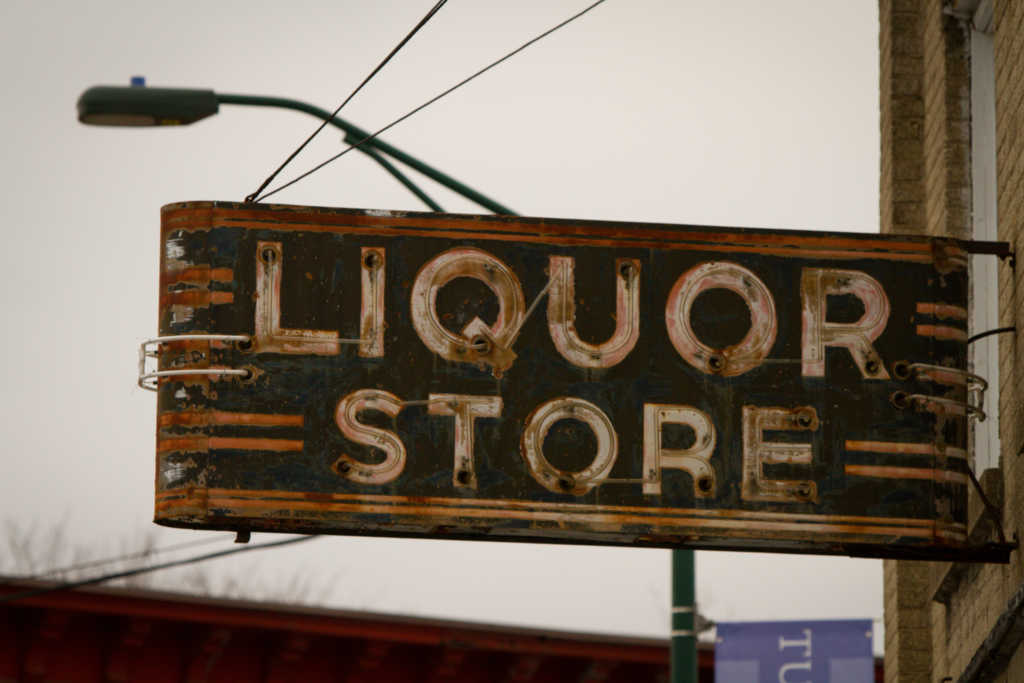A Nebraska pastor is raising money to purchase four major liquor stores near a Native American reservation, NPR reported. The town of Whiteclay, Neb., has a population of only 14 people, but the four liquor stores still manage to sell 4 million cans of beer a year.
The vast majority of the stores’ beer sales can be traced to individuals from the Pine Ridge Reservation in South Dakota. The reservation, which is right near the Nebraska state line, is officially dry. But according to statistics collected by the American Indian Humanitarian Foundation, alcoholism affects eight out of 10 families on the reservation, and the death rate from alcohol-related problems is 300 percent higher on the reservation compared to the rest of the country:
Unlike other Nebraska communities, Whiteclay exists only to sell liquor and make money. It has no schools, no churches, no civic organizations, no parks, no benches, no public bathrooms, no fire service and no law enforcement. Tribal officials have repeatedly pleaded with the State of Nebraska to close these liquor stores or enforce the State laws regulating liquor stores but have been consistently refused.
Given this problem, Pastor Bruce BonFleur launched an effort to buy out all four liquor stores in Whiteclay and cut off the flow of alcohol to a vulnerable community. Unsurprisingly, the stores were reluctant. Eventually, however, they presented Pastor BonFleur with their asking price: $6.3 million.
“I don’t have any money bags attached to me,” BonFleur told NPR, “but we do have some contacts with foundations and other groups of people.”
The pastor formed a nonprofit organization to raise the money needed to close the stores, aid the Oglala Sioux Tribe of the Pine Ridge Reservation, and restore the depressed town of Whiteclay.
“We hope that the good people of Nebraska and whoever else hears this nationwide — or worldwide, whatever — will say this is one way that we can end this. We can end this travesty,” BonFleur said.
NPR interviewed local Lakota woman April Thunder Hawk outside State Line Liquor store. Thunder Hawk noted that though she is a regular customer, she’d prefer to see all the stores closed.
“It just looks depressing around here,” she said. “It’s just horrible. I don’t like these four stores, but I still come here.”
READ: ‘We All Need Faith and Hope’: Reba McEntire Brings the Gospel to the ‘Today’ Show in a Big Way
Unfortunately, those four stores also serve as some of the only destinations for locals to buy non-alcoholic items like soft drinks and snacks. Without these businesses, there’s not much else going on in Whiteclay. BonFleur is aware of this, which is why he’s enlisted friends to help him collect donated material to build mini homes in Whiteclay. Family Dollar has also agreed to open a Whiteclay location once the liquor stores have closed.
While BonFleur’s efforts to improve his community are commendable, it’s important to consider that closing these liquor stores would likely only provide a short-term solution. Unfortunately, it would not address the larger problems underlying the widespread abuse of alcohol and drugs on Native American reservations nationwide.
Government handouts and regulations have largely contributed to this harmful behavior by robbing able-bodied, working-age Native Americans of the dignity of meaningful work. Writing for the Daily Signal back in September, Naomi Schaefer Riley explains the ways in which the U.S. government has harmed Native Americans:
Because Indians don’t own their land—or, in most cases, their homes—they can’t get credit, making it extraordinarily difficult for them to set up a small business. Conrad Stewart, who chairs the National Resources Infrastructure for the Crow tribe, sums up the situation: “We are the highest regulated race in the world.” Not only have individual American Indians been regulated into a kind of paralysis, larger economic projects on the reservation have all but stopped as a result of federal oversight.
This sort of regulation, combined with other forms of government welfare provided to native tribes, has proven devastating for Native American populations.
It is not good for man to not earn an honest living and reap the fruits of his labor. When he is robbed of this, a type of nihilistic despair takes over, and his soul suffers. Pastor BonFleur is off to a great start, but until this larger problem is addressed, moral decay will continue among these groups, liquor stores or no liquor stores.
—
Other Must-Read Stories:
—There’s a Very Purposeful Reason Why This New TV Show is Airing During the ‘Graveyard Slot’
—Horrific Heroin Overdose Viral Video Leads to Incredible Family Reconciliation
—Country Music Performer Reveals Secret Sin That Nearly Destroyed His Life



